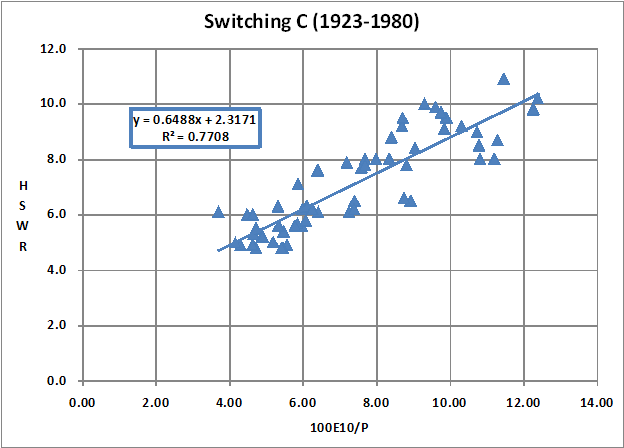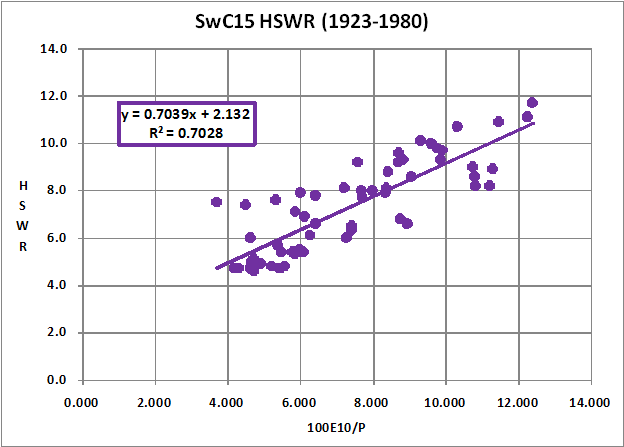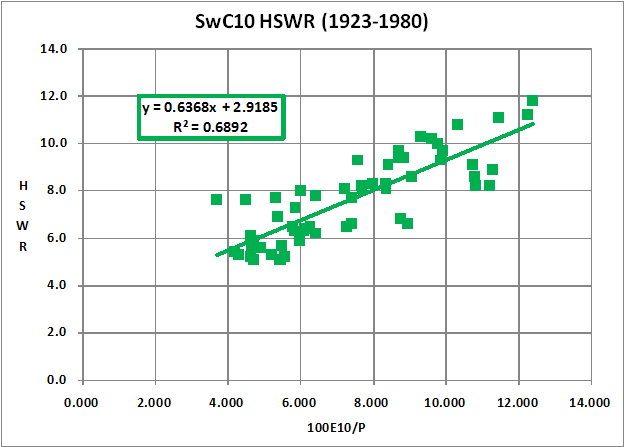|
Switching C VariantsI optimized stock allocation switching for today’s valuations on the Investment Strategy Tester. I call this Switching C. I have added variants SwC15 and SwC10. I have now generated 30-year Historical Surviving Withdrawal Rates for sequences starting in 1923-1980. SettingsI built a calculator to test the advantage of staying out of stocks whenever P/E10=20 and above. I kept the investor out of stocks until P/E10 fell below 15 for SwC15 and 10 for SwC10. That is, I froze the allocation during long lasting (secular) Bear Markets. I did this by modifying the P/E10 data in the Deluxe V1.1A08a calculator. GraphsThese pictures show the 30-year Historical Surviving Withdrawal Rates HSWR of Switching C, variant SwC15 and variant SwC10 starting from 1923-1980. 


ObservationsThe Investment Strategy Tester has expanded our ability to optimize Valuation Informed Indexing settings. It allows us to look at mid-range and favorable valuations. Previous procedures were limited to starting at high valuations. |